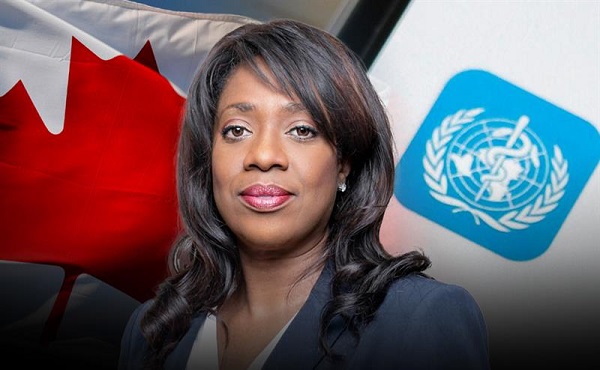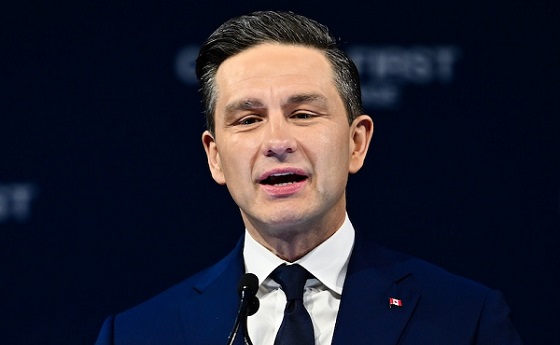Uncategorized
Bush mourned as a great statesman, a man of uncommon decency

WASHINGTON — Former President George H.W. Bush is returning to Washington as a revered political statesman, hailed by leaders across the political spectrum and around the world as a man not only of greatness but also of uncommon decency and kindness.
Bush, who died late Friday at his Houston home at age 94, is to be
Before that, his body will lie in state in the Capitol Rotunda for a public viewing from his arrival in Washington Monday until Wednesday morning.
President Donald Trump, who ordered federal offices closed for a national day of mourning on Wednesday, is to attend with first lady Melania Trump and other high-ranking officials.
Bush’s crowning achievement as president was assembling the international military coalition that liberated the tiny, oil-rich nation of Kuwait from invading
“We didn’t agree much on domestic policy, but when it came to the international side of things, he was a very wise and thoughtful man,” former Massachusetts Gov. Michael Dukakis, a Democrat who lost the presidency to Bush in 1988, told The Associated Press on Saturday. He credited Bush’s ability to negotiate with former Soviet Premier Mikhail Gorbachev as playing a key role.
“It was a time of great change, demanding great responsibility from everyone,” Gorbachev told the Interfrax news agency. “The result was the end of the Cold War and nuclear arms race.”
During that time and after, Gorbachev said, he always appreciated the kindness Bush and his family showed him.
In Washington, the former Republican president won praise from leaders of both parties.
Republican House Speaker Paul Ryan lauded him for leading the nation with “decency and integrity,” while Democratic House Leader Nancy Pelosi said it was a “privilege to work with him.”
Republican Sen. Bob Corker of Tennessee said Bush “befriended political foes, reminding Americans that there is always more that unites us than divides us.”
At the G-20 summit in Argentina, German Chancellor Angela Merkel, who was raised in then-divided East Germany, told reporters she likely would never have become her country’s leader had Bush not pressed for the nation’s reunification in 1990.
A humble hero of World War II, Bush was just 20 when he survived being shot down during a bombing run over Japan. He had enlisted in the U.S. Navy on his 18th birthday.
Shortly before leaving the service, he married his 19-year-old sweetheart, Barbara Pierce, a union that lasted until her death earlier this year.
After military service, Bush enrolled in Yale University, where he would become a scholar-athlete, captaining the baseball team to two College World Series before graduating Phi Beta Kappa after just 2
After moving to Texas to work in the oil business, Bush turned his attention to politics in the 1960s, being elected to his first of two terms in Congress in 1967. He would go on to serve as ambassador to the United Nations and China, head of the CIA and chairman of the Republican National Committee before being elected to two terms as Ronald Reagan’s
Soon after he reached the zenith of his political popularity following the liberation of Kuwait, the U.S. economy began to sour, however, and voters began to believe that Bush, never a great orator, was out of touch with ordinary people.
He lost his bid for re-election to then-Arkansas Gov. Bill Clinton, who would later become a close friend. The pair worked together to raise tens of millions of dollars for victims of a 2004 Indian Ocean tsunami and Hurricane Katrina, which swamped New Orleans and the Gulf Coast in 2005.
“Who would have thought that I would be working with Bill Clinton of all people?” he joked in 2005.
Clinton said he would be “forever grateful” for that friendship.
___
Rogers reported from Los Angeles. Associated Press writer Susan Haigh contributed to this story.
Darlene Superville And John Rogers, The Associated Press
Uncategorized
New report warns WHO health rules erode Canada’s democracy and Charter rights

The Justice Centre for Constitutional Freedoms has released a new report titled Canada’s Surrender of Sovereignty: New WHO health regulations undermine Canadian democracy and Charter freedoms. Authored by Nigel Hannaford, a veteran journalist and researcher, the report warns that Canada’s acceptance of the World Health Organization’s (WHO) revised International Health Regulations (IHR) represents a serious erosion of national independence and democratic accountability.
The IHR amendments, which took effect on September 19, 2025, authorize the WHO Director-General to declare global “health emergencies” that could require Canada to follow directives from bureaucrats in Geneva, bypassing the House of Commons and the will of Canadian voters.
The WHO regards these regulations as “binding,” despite having no ability or legal authority to impose such regulations. Even so, Canada is opting to accept the regulations as binding.
By accepting the WHO’s revised IHR, the report explains, Canada has relinquished its own control over future health crises and instead has agreed to let the WHO determine when a “pandemic emergency” exists and what Canada must do to respond to it, after which Canada must report back to the WHO.
In fact, under these International Health Regulations, the WHO could demand countries like Canada impose stringent freedom-violating health policies, such as lockdowns, vaccine mandates, or travel restrictions without debate, evidence review, or public accountability, the report explains.
Once the WHO declares a “Pandemic Emergency,” member states are obligated to implement such emergency measures “without delay” for a minimum of three months.
Importantly, following these WHO directives would undermine government accountability as politicians may hide behind international “commitments” to justify their actions as “simply following international rules,” the report warns.
Canada should instead withdraw from the revised IHR, following the example of countries like Germany, Austria, Italy, Czech Republic, and the United States. The report recommends continued international cooperation without surrendering control over domestic health policies.
Constitutional lawyer Allison Pejovic said, “[b]y treating WHO edicts as binding, the federal government has effectively placed Canadian sovereignty on loan to an unelected international body.”
“Such directives, if enforced, would likely violate Canadians’ Charter rights and freedoms,” she added.
Mr. Hannaford agreed, saying, “Canada’s health policies must be made in Canada. No free and democratic nation should outsource its emergency powers to unelected bureaucrats in Geneva.”
The Justice Centre urges Canadians to contact their Members of Parliament and demand they support withdrawing from the revised IHR to restore Canadian sovereignty and reject blind compliance with WHO directives.
Uncategorized
CNN’s Shock Climate Polling Data Reinforces Trump’s Energy Agenda


From the Daily Caller News Foundation
As the Trump administration and Republican-controlled Congress move aggressively to roll back the climate alarm-driven energy policies of the Biden presidency, proponents of climate change theory have ramped up their scare tactics in hopes of shifting public opinion in their favor.
But CNN’s energetic polling analyst, the irrepressible Harry Enten, says those tactics aren’t working. Indeed, Enten points out the climate alarm messaging which has permeated every nook and cranny of American society for at least 25 years now has failed to move the public opinion needle even a smidgen since 2000.
Appearing on the cable channel’s “CNN News Central” program with host John Berman Thursday, Enten cited polling data showing that just 40% of U.S. citizens are “afraid” of climate change. That is the same percentage who gave a similar answer in 2000.
Dear Readers:
As a nonprofit, we are dependent on the generosity of our readers.
Please consider making a small donation of any amount here.
Thank you!
Enten’s own report is an example of this fealty. Saying the findings “kind of boggles the mind,” Enten emphasized the fact that, despite all the media hysteria that takes place in the wake of any weather disaster or wildfire, an even lower percentage of Americans are concerned such events might impact them personally.
“In 2006, it was 38%,” Enten says of the percentage who are even “sometimes worried” about being hit by a natural disaster, and adds, “Look at where we are now in 2025. It’s 32%, 38% to 32%. The number’s actually gone down.”
In terms of all adults who worry that a major disaster might hit their own hometown, Enten notes that just 17% admit to such a concern. Even among Democrats, whose party has been the major proponent of climate alarm theory in the U.S., the percentage is a paltry 27%.
While Enten and Berman both appear to be shocked by these findings, they really aren’t surprising. Enten himself notes that climate concerns have never been a driving issue in electoral politics in his conclusion, when Berman points out, “People might think it’s an issue, but clearly not a driving issue when people go to the polls.”
“That’s exactly right,” Enten says, adding, “They may worry about in the abstract, but when it comes to their own lives, they don’t worry.”
This reality of public opinion is a major reason why President Donald Trump and his key cabinet officials have felt free to mount their aggressive push to end any remaining notion that a government-subsidized ‘energy transition’ from oil, gas, and coal to renewables and electric vehicles is happening in the U.S. It is also a big reason why congressional Republicans included language in the One Big Beautiful Bill Act to phase out subsidies for those alternative energy technologies.
It is key to understand that the administration’s reprioritization of energy and climate policies goes well beyond just rolling back the Biden policies. EPA Administrator Lee Zeldin is working on plans to revoke the 2010 endangerment finding related to greenhouse gases which served as the foundation for most of the Obama climate agenda as well.
If that plan can survive the inevitable court challenges, then Trump’s ambitions will only accelerate. Last year’s elimination of the Chevron Deference by the Supreme Court increases the chances of that happening. Ultimately, by the end of 2028, it will be almost as if the Obama and Biden presidencies never happened.
The reality here is that, with such a low percentage of voters expressing concerns about any of this, Trump and congressional Republicans will pay little or no political price for moving in this direction. Thus, unless the polls change radically, the policy direction will remain the same.
David Blackmon is an energy writer and consultant based in Texas. He spent 40 years in the oil and gas business, where he specialized in public policy and communications.
-

 Agriculture5 hours ago
Agriculture5 hours agoFrom Underdog to Top Broodmare
-

 Digital ID1 day ago
Digital ID1 day agoThousands protest UK government’s plans to introduce mandatory digital IDs
-

 Health5 hours ago
Health5 hours agoSovereignty at Stake: Why Parliament Must Review Treaties Before They’re Signed
-

 Health14 hours ago
Health14 hours agoCanada surrenders control of future health crises to WHO with ‘pandemic agreement’: report
-

 Carbon Tax1 day ago
Carbon Tax1 day agoBack Door Carbon Tax: Goal Of Climate Lawfare Movement To Drive Up Price Of Energy
-

 Digital ID2 days ago
Digital ID2 days agoToronto airport requests approval of ‘digital IDs’ for domestic airport travel
-

 Censorship Industrial Complex14 hours ago
Censorship Industrial Complex14 hours agoCanada’s justice minister confirms ‘hate crimes’ bill applies to online content
-

 Brownstone Institute2 days ago
Brownstone Institute2 days agoThe Doctor Will Kill You Now









